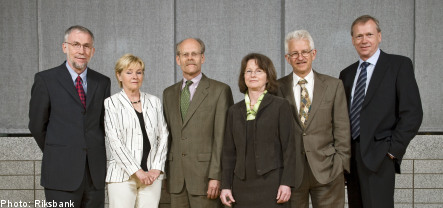The Riksbank raised Sweden’s benchmark interest rate, the repo rate, by 0.25 percent to 4.75 percent, despite the reservations expressed by three members of the Executive Board.
The deciding vote in favour of the rate hike was cast by Riksbank Governor Stefan Ingves.
The three deputy governors who opposed the move, Lars Nyberg, Irma Rosenberg and Barbro Wickman-Parak, expressed reservations against both the decision to raise the rate as well as the repo rate’s future direction.
Following the publication of the Riksbank minutes, the Nordea bank altered its interest rate forecast.
Nordea’s head analyst Torbjörn Isaksson said the news of a split decision came as no surprise.
“But they were also split about the future rate path and three members of the board wanted to see a lower rate path. That was really not expected. And it shows that the first rate cut is coming sooner.”
Previously, Nordea had projected that the Riksbank would lower rates in April.
“But in light of the recent developments, it looks like it will likely come in Feburary or even earlier. So we’re changing our forecast to February and it’s possible it will come oven sooner,” said Isaksson.



 Please whitelist us to continue reading.
Please whitelist us to continue reading.